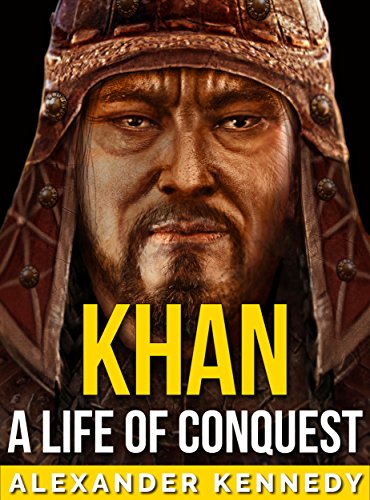|
Khan, A Life of Conquest, by Alexander Kennedy
100 Pages Recommended: 3/5 Khan, A Life of Conquest is a short and factual description of Genghis Khan's brutal life. Kennedy steers clear from our modern historical stereotypes, and explains why much of Khan's barbaric behavior was justified and expected by the standards of his time. Khan unified several "mongol*" tribes, and conquered the Chinese empire. He then set his eyes west, and pushed all the way into Persia and Russia. The clash between nomadic and sedentary people played another major role in history. He is remembered for his many offspring and his brutal conquests. This book help me understand the context behind Genghis Khan's brutality. Life on the step was harsh, and brutal customs evolved on the Eurasian Plane. The terrain made it impossible to sustain most agriculture, so the people had to rely on herding. The problem with herding is that cattle can easily be stolen by raiders. In order to defend themselves against raiders, the steppe peoples developed extremely violent customs. When a steppe tribe would subjugate a rival tribe, all of the men of the rival tribe were executed. The kings were usually strangled, which was viewed as a more noble way of dying. The children were raised as members of the conquering tribes. All of the young women are captured, and taken as concubines for the tribe's warchiefs. The "mongols" were surprisingly advanced. The modern stereotype of wild horse peoples is a Hollywood myth. For example, the "mongols" had a very advanced postal system which allowed messages to travel their vast empire in a matter of days. The roads had a series of well-spaced trading posts where fresh riders and horses would wait. When a messenger would arrive at a trading post, he would pass the package to the next rider, who would immediately depart. Genghis Khan also established a rudimentary system of law and order. Under his rule, the roads were safe and free from bandits. Caravans could, for the first time ever, safely travel by land across Eurasia. Khan also lowered taxes for many merchants, and under his rule, commerce flourished. The "mongols" also displayed very sophisticated military tactics. The armies followed strict rules: no drinking during the battles, no retreat, no looting before a battle was over, etc... Prior to Khan, the "mongols" had a major tactical disadvantage: they couldn't capture cities. Under Khan, they made use of sophisticated siege weapons and were able to sweep across entire empires. I recommend that everyone read about Genghis Khan, but wouldn’t necessarily recommend this book. *The word "mongol" is a modern construction, and Genghis Khan would have had no concept of Mongol identity.
0 Comments
Leave a Reply. |
Thibault SerletMost of my articles are book reviews, but I also write about many other topics. Archives
December 2023
Categories |

 RSS Feed
RSS Feed